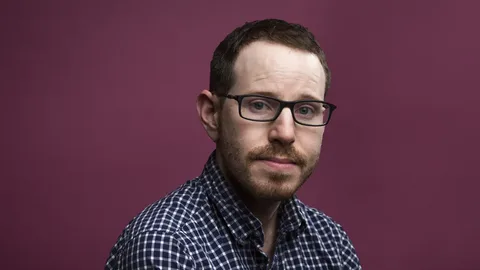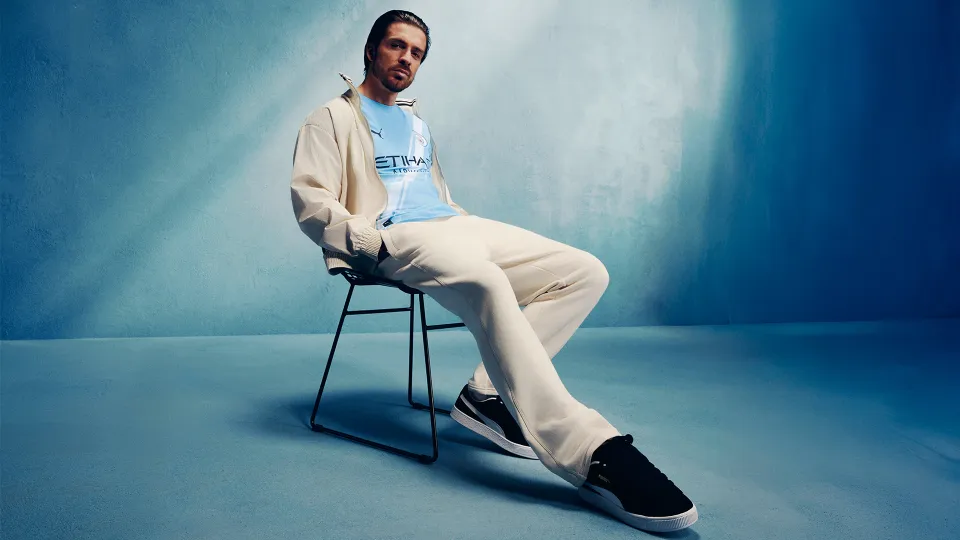When Ari Aster released Beau Is Afraid, he knew he wasn’t making a crowd-pleaser. The movie, a sprawling, deeply surreal journey into the psyche of a man crushed by guilt, anxiety, and maternal trauma, was never designed to fit neatly into mainstream expectations. And yet, even Aster now admits he might have underestimated just how prophetic the film’s final moments would become.
In the film’s closing scene, Joaquin Phoenix’s Beau is left to a symbolic fate: judged, discarded, and ultimately ignored. The arena empties slowly, quietly, with the crowd indifferent to his suffering. Reflecting on this moment a year after the movie’s release, Aster muses, “It occurred to me in retrospect… I knew where this was headed.”
A Passion Project with a Polarizing Afterlife
A Big Budget Gamble
Beau Is Afraid was never small. With a reported budget of $35 million, it was one of A24’s most ambitious productions—an unusually large investment for an auteur-driven piece of psychodrama. Ari Aster, known for the precise dread of Hereditary and the sun-drenched horror of Midsommar, now had a bigger canvas and more freedom than ever before. And he didn’t hold back.
The result? A film filled with grotesque detours, animated interludes, aggressively uncomfortable sexual encounters, and a labyrinth of psychological dread. “The film shape-shifts a lot,” Aster explains. “It has something of hostility toward traditional narrative structure.” From the outset, he designed it to provoke, confuse, and divide.
A Cool Reception—and a Quiet Cult
Despite A24’s aggressive marketing push, the movie grossed under $10 million domestically. Critics and audiences seemed uncertain about how to react. Was it brilliant or bloated? A bold personal statement or a three-hour indulgence?
In hindsight, Aster sees this as part of the experiment. He says he was always excited by the idea of creating a film that people would either hate or love—but not ignore. However, what he hadn’t anticipated was that the polarization itself might push audiences away entirely. “The response being all over the board meant some people didn’t even bother,” he reflects.
And yet, in the months following its release to digital platforms, Beau Is Afraid began to find new life. Champions emerged. Reddit threads and Letterboxd reviews dove deep into hidden meanings, recurring motifs, and buried clues. Even Martin Scorsese publicly praised the film’s daring and originality. Slowly, a cult following has taken root.
Interpreting the Crowd’s Indifference
The Ending as Metaphor
For Aster, the ending of Beau Is Afraid wasn’t just narrative closure—it was foreshadowing. The quiet exit of the crowd during Beau’s final moments was eerily echoed in the way audiences reacted to the film: with confusion, dismissal, or indifference.
“That ending is part of the point,” Aster notes. “I wasn’t quite ready for how prophetic it would be.” It represents a cruel metaphor for contemporary cinema culture—one where a risky, singular vision can be left to rot while safer, algorithmically optimized entertainment wins the day.
Cynicism vs. Hope in a Shifting Industry
Despite some lingering bitterness, Aster isn’t completely cynical. “I’m prepping my next film,” he says. “So I can’t be that cynical.” In an era where greenlighting an original project with this level of scale and freedom is nearly impossible, Aster remains deeply grateful.
“I was able to make this film in this climate with so few compromises,” he says. “That’s really a beautiful, exciting thing.”
Still, he dreams of a time when divisiveness might be a marketing tool rather than a deterrent. When a film like Beau Is Afraid could generate genuine curiosity: “I fantasize about there having been a time when a film like this would’ve made people excited to go to the theater just to see how they felt.”
A Film Designed to Repel (and Reward)
A Character Who Refuses to Change
One of Aster’s boldest choices was constructing Beau Is Afraid around a protagonist who undergoes virtually no growth. “It was always important to me that the film be about a character who does not change,” he explains. In a typical Hollywood arc, this would be narrative suicide—but in Beau, it’s essential to the theme.
The film’s hostility to traditional structure extends to its pacing. Clocking in at just under three hours, it’s relentlessly episodic and tonally volatile. Every shift in location is like starting a new film—from the grimy city streets to a suburban nightmare to a hallucinatory forest play.
Each world has its own rhythms, styles, and rules. For Aster and Phoenix, that was part of the challenge. “Every time we moved to a new location, it was a reset,” he says. “The first day of shooting in each new world was always a disaster.”
The Joy of Chaos
Despite those challenges, Aster looks back on the production with fondness. “There was a real joy in making it,” he says. “It’s absolutely my favorite of my own films and the furthest I’ve been able to go.” He considers it a deeply personal work—an inside-out reflection of his fears, anxieties, and obsessions.
And yet, he’s frustrated by how little some audiences engaged with its layers. “People talked about it as a letdown,” he says. “When clearly—that’s the joke!”
There are buried elements in the film that no one has picked up on yet, Aster reveals. For instance, in the cruise sequence, he hints that certain background details suggest an entirely separate story playing out behind the main plot. “I was disappointed by how verdict-based the reception was. Like, ‘It doesn’t work.’ Well—what doesn’t work?”
Spotlight on the Ensemble
Pushing Theater Icons Into the Absurd
While Phoenix is in nearly every scene, Beau Is Afraid is also packed with an impressive ensemble of stage and screen veterans. Patti LuPone plays Beau’s domineering mother with venomous grandeur, while Parker Posey delivers one of the film’s strangest—and most hilarious—performances.
Aster is still in awe of Posey’s work. “That porch scene… I knew I wanted it to be ghostly and ethereal, but what she did there was mesmerizing,” he says. Posey’s big moment, set to a Mariah Carey song, became one of the film’s most discussed scenes online—and Aster knew it would. “The goal was to make the most horrendous sex scene possible,” he admits. “To be in the canon of atrocious despicable sex scenes.”
Controlled Chaos on Set
Each actor had roughly ten days on set—except for Phoenix, who carried the entire production. And because each segment required a completely different tone, every shoot day felt like a fresh experiment.
“We had to find the rules of these different environments,” Aster explains. “To make them real, even though they exist in this funhouse mirror reflection of reality.” That relentless pivoting made the shoot emotionally and logistically draining—but also exhilarating.
Despite the difficulty, the cast came together in a kind of camaraderie-by-chaos. “We were out at sea with each new section,” he recalls. “There was this collective feeling of, ‘How do we make this work?’”
Reflections and the Future
Personal Exposure and Artistic Risk
Making a film as strange and intimate as Beau Is Afraid is emotionally exposing. Aster says he felt “protective” of the final product—particularly as audiences and critics struggled to pin it down. “It feels like you’re just pulling yourself inside out,” he says.
But he wouldn’t take it back. Despite the box office numbers, the confusion, and the harsh reactions, he stands by Beau Is Afraid as his most personal and complete vision to date.
“I’m doing my best to not learn certain lessons,” he says. “Because if I do, I won’t make a film like Beau Is Afraid again.”
Still Working With Joaquin Phoenix
Aster’s next project is already in motion, though details are scarce. What we do know: Joaquin Phoenix is returning. And Aster is thrilled.
“Working with him was one of the most invigorating experiences I’ve ever had,” he says. “He’s the greatest. A real mensch—and also a really serious, inspiring artist.”
There’s a glimmer of optimism there. Despite industry headwinds, Aster is still making art on his terms, with one of Hollywood’s most unpredictable and committed actors by his side.
Conclusion: A Legacy That’s Still Unfolding
Beau Is Afraid may not have been a commercial hit, but its legacy is still unfolding. The film’s complexity, unpredictability, and psychological depth make it ripe for rediscovery. And for Ari Aster, that’s the real hope—that audiences keep finding it.
“I just hope people keep engaging with it,” he says. “There are things buried in this film that still haven’t been found.”
In a landscape where visionary risk is often punished, Beau Is Afraid stands as a testament to uncompromising creativity. Whether you love it or hate it—or can’t quite decide—it demands your attention. And Ari Aster still wants you to give it a chance.
- Natural Lip Filler – Elegant Lip Enhancement & Subtle Lip Augmentation - December 19, 2025
- Lip Augmentation in London – Lip Filler London & Natural Lip Enhancement - December 16, 2025
- Bonnie Blue secretly filming huge C4 show which will reveal ‘what her life’s really like’ after 1,000 men sex stunt - June 5, 2025






